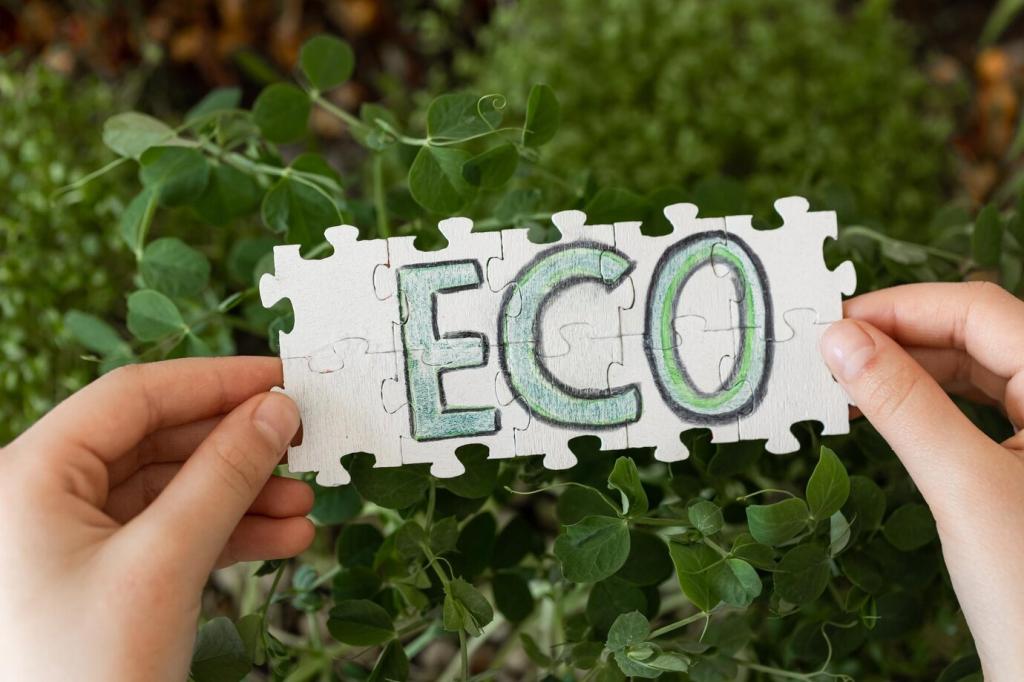Choosing Green Materials for Furniture Restoration
Why Green Materials Matter in Restoration
Low-VOC finishes, adhesives, and stains drastically reduce indoor air pollution, protecting families from headaches, respiratory irritation, and lingering chemical odors. Choosing safer products makes your restored pieces genuinely welcome indoors. Share your experiences and subscribe for deeper guides and product breakdowns.
Why Green Materials Matter in Restoration
Look for FSC or PEFC certifications when buying new lumber, and documented chains of custody for reclaimed wood. These signals help ensure forests are managed responsibly. Ask questions at the counter, and tell us where you buy sustainable stock so we can map trusted sources together.




Natural Finishes: Oils, Waxes, and Shellac
Tung and polymerized linseed oils penetrate deeply, accentuate figure, and cure into resilient films without harsh solvents. Apply thin coats, wipe diligently, and let oxygen do its work. Share your oil recipes, and join our newsletter for curing timelines and troubleshooting tips.
Natural Finishes: Oils, Waxes, and Shellac
Beeswax and carnauba wax blends deliver a gentle glow and a tactile, warm feel that synthetic films rarely replicate. They excel as top-ups over oil. Tell us your preferred wax ratios, and follow for seasonal maintenance reminders that keep surfaces velvety and protected.
Eco-Friendly Paints and Stains
Milk Paint: Timeless, Nontoxic Character
Made from casein, lime, and natural pigments, milk paint creates a gently mottled, historic look that suits aged furniture. It bonds well with a compatible primer or bonding agent. Post your before-and-after photos, and subscribe for our crackle and layering techniques guide.
Waterborne Stains That Let Grain Breathe
Modern waterborne stains deliver rich color with significantly fewer fumes than solvent-based options. Raise the grain lightly, sand smooth, and proceed with even strokes. Share your favorite brands and tips below, and sign up for our stain compatibility chart across eco finishes.
Natural Pigments and Subtle Washes
Earth and mineral pigments offer nuanced hues that age gracefully. Mixed into casein or waterborne bases, they create delicate washes that respect the substrate. Tell us your go-to pigment sources, and subscribe to receive our safe mixing ratios and fade-resistance notes.

Hot hide glue remains reversible and historically appropriate, while casein offers strong, moisture-resistant bonds. Low-VOC PVAs can be a practical middle ground. Share your clamp time benchmarks, and subscribe for our temperature and humidity charts for reliable curing.
Adhesives and Fillers with Lower Impact
Greener Workshop Practices That Multiply Impact
01
Dust, Air, and Quiet Protection
HEPA filtration, open windows, and simple hand tools reduce airborne particles and energy demands. Your lungs and neighbors will thank you. Tell us your favorite quiet tools, and subscribe for our airflow calculator to optimize ventilation in small restoration spaces.
02
Waste Less, Save More
Reuse jars for finishes, filter and reclaim solvents, and cut rags from retired linens. Label everything clearly to avoid wasteful mistakes. Share your best reuse hack, and follow us for our monthly challenge on shrinking restoration waste streams creatively.
03
Energy-Smart Choices Add Up
LED task lights, solar chargers for cordless tools, and timing heavy sanding for off-peak hours reduce your footprint. Comment with your energy wins, and subscribe to join our workshop audit series that identifies easy, practical savings for restorers.
From Wobble to Welcome
A reader rescued a wobbly oak chair, tightened joints with hot hide glue, and refreshed the seat with milk paint layered over a gentle wash. The room lost its musty varnish smell instantly. Share your first green restoration and inspire someone starting today.
Tung Oil Glow, Waxed to Perfection
Two thin coats of tung oil, a week of patient curing, and a beeswax buff produced a warm, hand-rubbed sheen. Small fingerprints disappeared with a quick re-buff. Tell us your curing rituals, and subscribe for our seasonal maintenance schedule that truly fits real life.
Pass It Forward
The owner left a note under the seat documenting materials and dates for future caretakers. That small kindness preserves both story and safety. What record will you leave in your next piece? Comment below, and join our newsletter for printable project logs.
